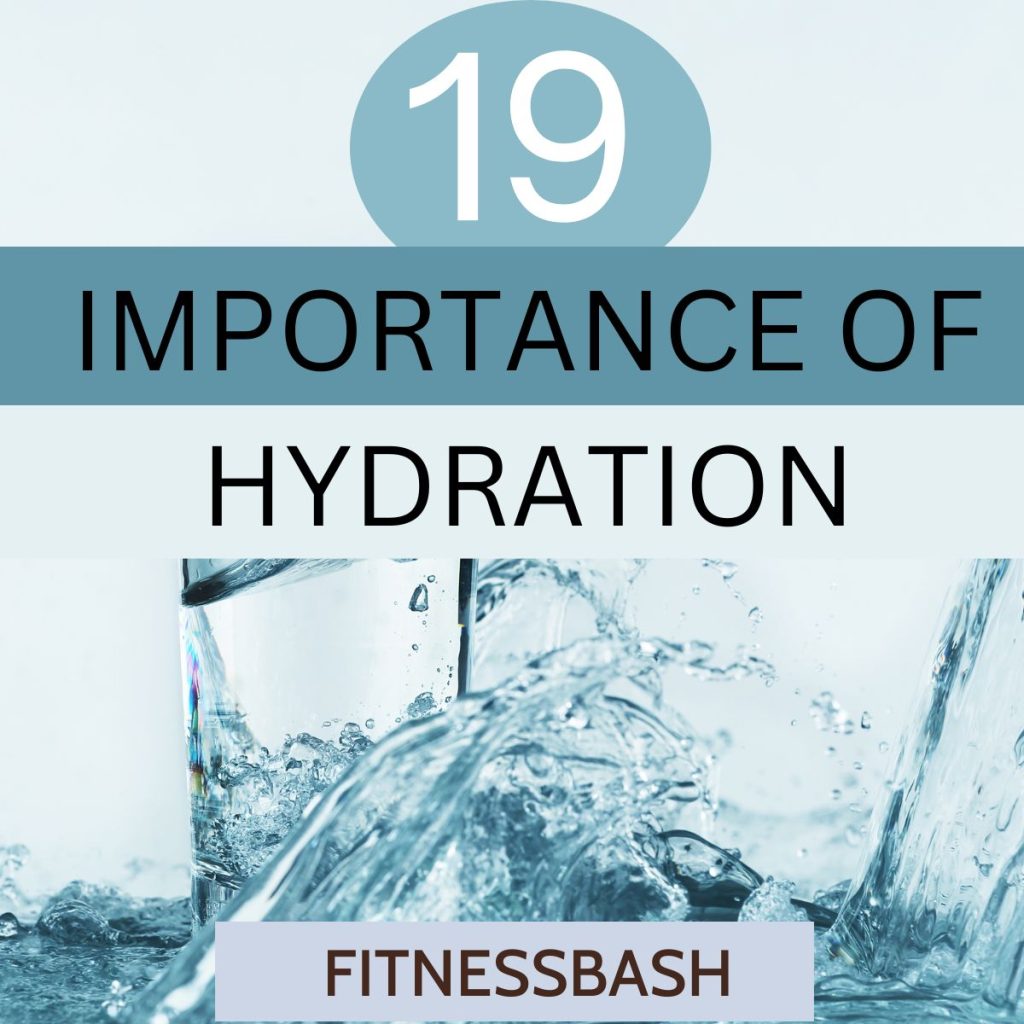The Importance of Hydration: How Water Impacts Your Health
Hydration is a crucial aspect of maintaining good health.
The human body is composed of approximately 60% water, emphasizing the significance of water for our overall well-being.
Water plays a vital role in various physiological processes and is essential for the proper functioning of our organs and systems.
The Role of Water in the Body
- Fluid Balance: Water helps maintain fluid balance in the body by regulating the distribution and movement of fluids between cells, tissues, and organs.
- Body Temperature Regulation: Water acts as a coolant through perspiration and evaporation, helping to regulate body temperature and prevent overheating.
- Joint Lubrication: Water serves as a lubricant for joints, enabling smooth movement and reducing friction between bones.
- Nutrient and Oxygen Transport: Water is a crucial component of blood and plays a vital role in transporting nutrients, oxygen, and hormones to cells throughout the body.
- Organ Function: Water is essential for the proper functioning of organs such as the kidneys, which rely on adequate hydration to filter waste and maintain electrolyte balance. It also aids in digestion by promoting the smooth movement of food through the digestive system.
Hydration and Cardiovascular Health
6. Blood Volume and Viscosity: Sufficient hydration helps maintain adequate blood volume and prevents blood from becoming too thick or viscous, which can strain the cardiovascular system.
7. Blood Pressure Regulation: Proper hydration supports healthy blood pressure levels, as dehydration can lead to increased blood pressure and potential cardiovascular complications.
8. Risks of Inadequate Hydration: Inadequate hydration can increase the risk of heart problems, including irregular heartbeats, blood clots, and even heart attacks.
Hydration and Physical Performance
Water cnsumption helps with body fatigue.
9. Endurance and Fatigue: Dehydration negatively impacts physical performance, leading to reduced endurance, increased fatigue, and decreased exercise capacity.
10. Cognitive Function: Even mild dehydration can impair cognitive function, affecting focus, concentration, and decision-making abilities during physical activities.
11. Importance for Athletes and Active Individuals: Staying hydrated is particularly crucial for athletes and active individuals to optimize performance, prevent muscle cramps, and aid in post-exercise recovery.
Water and Brain Function
12. Dehydration and Cognitive Performance: Dehydration can significantly affect brain function, leading to impaired cognitive performance, decreased memory retention, difficulty concentrating, and mood changes.
Hydration for Weight Management
13. Calorie-Free Substitute: Drinking water instead of sugary beverages can be an effective strategy for weight management, as water is calorie-free and can help reduce overall calorie intake.
14. Metabolism and Appetite: Staying hydrated supports a healthy metabolism, aids in the digestion and absorption of nutrients, and can help reduce appetite and prevent overeating.
Hydration and Skin Health
15. Skin Moisture and Elasticity: Adequate hydration helps maintain skin moisture, promoting elasticity, suppleness, and a youthful appearance.
16. Prevention of Skin Conditions: Proper hydration plays a crucial role in preventing skin conditions like dryness, flakiness, and acne.
17. Anti-Aging Benefits: Good hydration supports the skin’s natural collagen production, helping to reduce the appearance of fine lines, wrinkles, and premature aging.
Water and Nutrient Absorption
18. Digestion and Nutrient Breakdown: Water aids in the digestion process by breaking down food particles, facilitating the absorption of nutrients in the gastrointestinal tract.
19. Optimal Nutrient Utilization: Staying hydrated is essential for maximizing the body’s ability to utilize nutrients effectively, ensuring overall nutritional well-being.
Tips for Staying Hydrated
- Daily Water Intake: The recommended daily water intake varies depending on factors such as age, sex, activity level, and climate. As a general guideline, aim to consume at least eight glasses (64 ounces) of water per day.
- Individual Hydration Needs: Factors like physical activity, environmental conditions, and health conditions may influence individual hydration requirements. Listen to your body’s thirst signals and adjust your water intake accordingly.
- Incorporating Water into Daily Routines: Carry a reusable water bottle with you, set reminders to drink water throughout the day, and include hydrating foods like fruits and vegetables in your diet.
My Take on Importance of Hydration
Hydration is a fundamental aspect of maintaining good health and overall well-being.
Water plays a crucial role in various physiological processes, supporting fluid balance, regulating body temperature, facilitating nutrient transport, and promoting organ function.
Adequate hydration is vital for cardiovascular health, physical performance, brain function, weight management, skin health, and nutrient absorption.
By prioritizing hydration and making conscious efforts to stay properly hydrated, individuals can optimize their health and enjoy the numerous benefits that water provides.
Remember, water is an essential element for a healthy and vibrant life.

